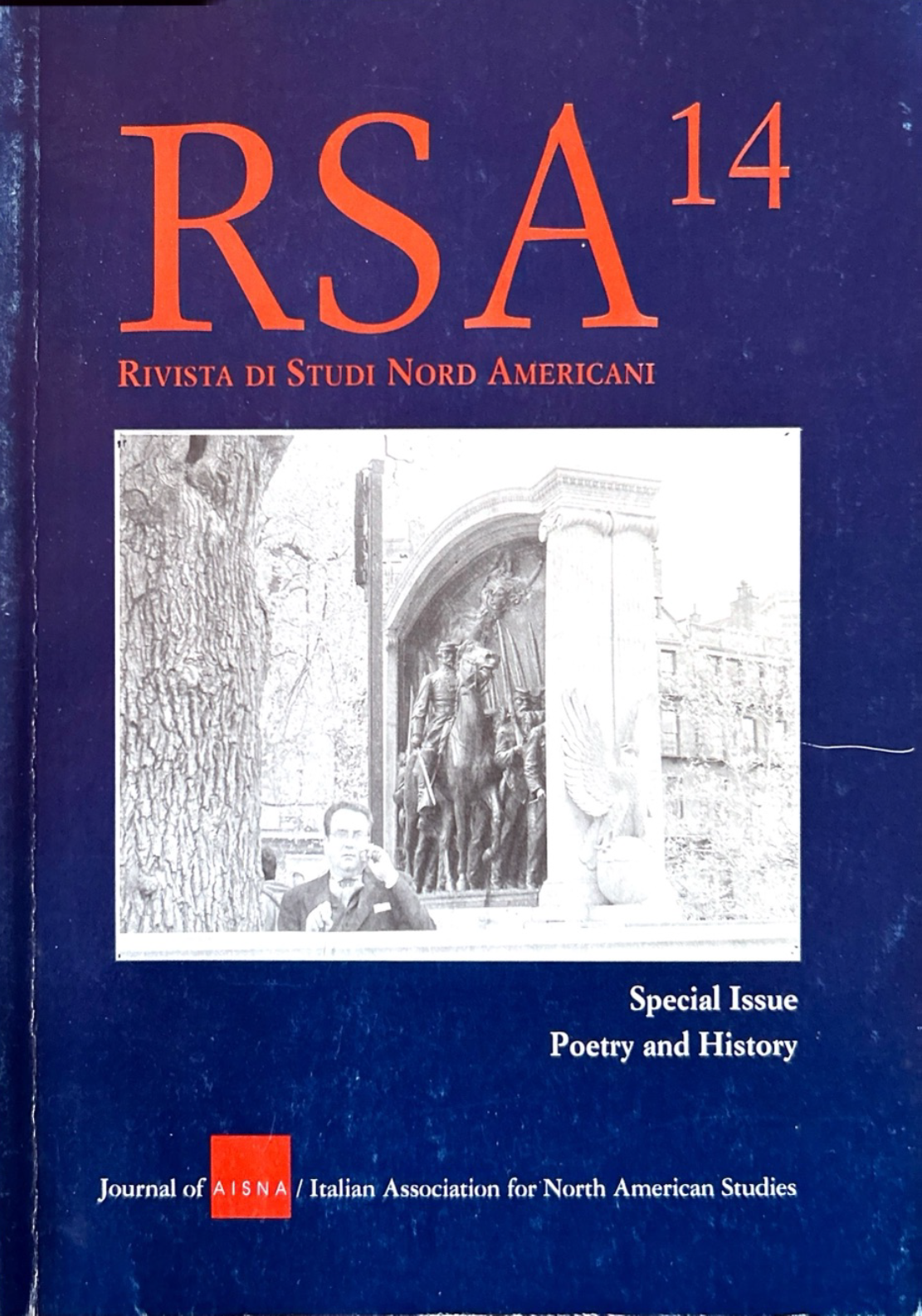Sonnet vs. Sonnet
The Fourteen Lines in African-American Poetry
DOI:
https://doi.org/10.13135/1592-4467/8818Keywords:
African-American poetry, sonnet, protest sonnets, war sonnetsAbstract
The essay analyses the sonnet form as practiced by African American poets in the course of the 20th century. It focuses on the way they have used the fourteen-line structure, turning it into a vehicle of communication, a forum for dynamic argumentation of social and political themes. In making it one of their chosen modes of expression, African American poets have succeeded in recovering the sonnet's original function, giving this metrical form new vitality. Its evolution is traced from the Romantics to contemporary authors, with special attention to the "protest sonnets" of Claude McKay, the war sonnets of Gwendolyn Brooks, and recent experimentations by Rita Dove and Yusef Komunyakaa.
Downloads
Published
Issue
Section
License
RSAJournal will apply a CC BY 4.0 license to all its contributions starting with issue 37 (2026). Previous issues are licensed under a CC BY-NC-ND licence.





